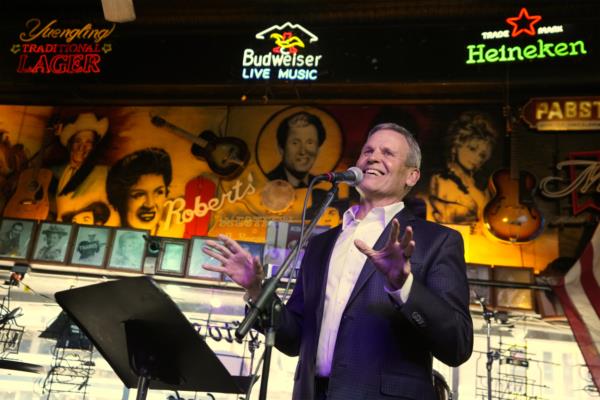
Tennessee Governor Bill Lee has signed into law a pioneering legislation aimed at safeguarding songwriters, performers, and other music industry professionals from the potential risks posed by artificial intelligence. This move positions Tennessee as the first state in the U.S. to implement such protective measures.
The bill, set to take effect on July 1, seeks to prevent AI tools from replicating an artist's voice without their explicit consent. Governor Lee emphasized the importance of preserving artists' intellectual property, gifts, and unique talents, underscoring that these qualities are intrinsic and should not be mimicked by artificial intelligence.
Referred to as the Ensuring Likeness, Voice, and Image Security Act or “ELVIS Act,” the newly enacted statute extends the property rights of name, photographs, and likeness to include vocal likeness. It introduces a civil action to hold individuals accountable for unauthorized publication or performance of an individual's voice, as well as the unauthorized use of technology to reproduce an artist's name, photographs, voice, or likeness.
While the legislation enjoys broad support from the music industry and received unanimous approval from the Tennessee Statehouse, its effectiveness remains untested. The bipartisan agreement on this issue, amidst political divides, is a notable anomaly.










Many Tennessee musicians have expressed urgency in protecting their art from AI threats, which are already encroaching on their creative spaces. Country star Luke Bryan highlighted the challenges of discerning AI-generated content from authentic work, emphasizing the need for measures to curb such practices.
The bill signing event, held at Nashville’s iconic Robert’s Western World, paid homage to the state's musical legacy by naming the legislation after Elvis Presley. The move draws from Tennessee's history of protecting personality rights beyond an individual's lifetime, a legacy that began with the Personal Rights Protection Act of 1984.
By extending protections to vocal likeness, Tennessee aims to fortify the rights of its public figures and artists against unauthorized use and replication by AI technologies, marking a significant step in safeguarding the integrity of the music industry.







